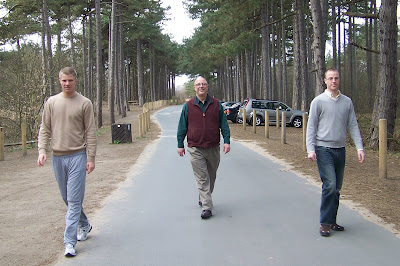
by Marc Chagall, 1887 - 1985
"I will not let thee go, except thou bless me."
Genesis 32:26
Art
In placid hours well-pleased we dream
Of many a brave unbodied scheme.
But form to lend, pulsed life create,
What unlike things must meet and mate:
A flame to melt--a wind to freeze;
Sad patience--joyous energies;
Humility--yet pride and scorn;
Instinct and study; love and hate;
Audacity--reverence. These must mate,
And fuse with Jacob's mystic heart,
To wrestle with the angel--Art.
Herman Melville, 1819 - 1891
American novelist, essayist, poet
I first came across this mystical wrestling poem in the most interesting way: I saw it inscribed around a circular ceiling mural in the lobby of an apartment highrise in Chicago. I was in that vestibule a few times many years ago but am now not even entirely sure what building it was. How I would love to see it again! The question is, do I have the courage to approach the door-keeper and say, "Excuse me, I don't live here or know anyone who lives here, but could I please step inside and glance at your ceiling?!" A few friends have suggested that such a request might not be ill - received. Audacity -- reverence. Right? But where to start? I've actually thought of asking a realtor to help me, since agents probably have access to such buildings that are otherwise closed to the general public.
For Melville's poem and more on Jacob and the Angel,
see my new post
"Except Thou Bless Me"
on THE FORTNIGHTLY KITTI CARRIKER
my fortnightly literary blog [every 14th & 28th]
of connection and coincidence































